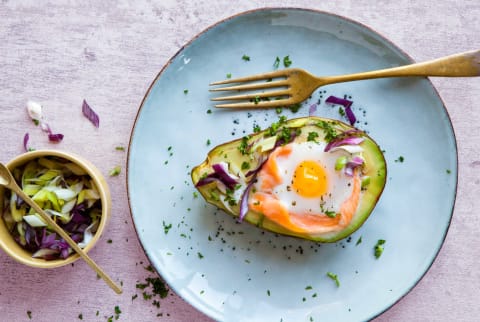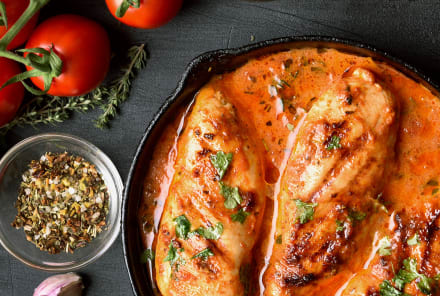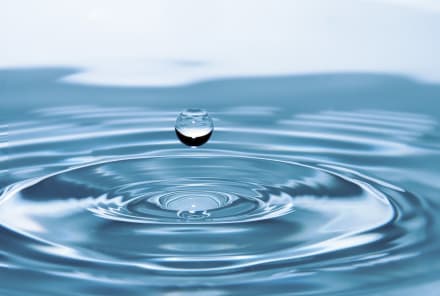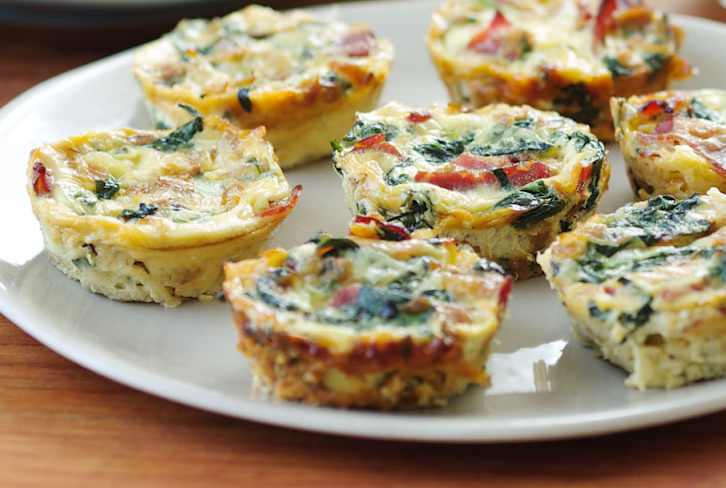Advertisement
I Tried This Trendy Plant-Based Diet For My Inflammation — Here's What Happened

Editor’s note: Will Cole, D.C., is a longtime member of the mbg family (he’s in the mbg Collective and is even a class instructor!). His new book, Ketotarian, is all about marrying a ketogenic and vegetarian, vegan, or pescatarian diet for exponentially greater health benefits. Here, he shares how being vegan wrecked his health—and shares the diet plan he used to feel great again.
The evolution of my health journey started years ago when I was a student in college, when I first decided not to eat any animal products. It came from a well-intentioned place—I had educated myself on factory farming, concentrated animal feeding operations (CAFOs), where animals live in deplorable conditions, and the damage that eating animals causes our health and environment.
I thought I knew it all. I was going to tell anyone who would listen about how being a vegan was better than what they were doing.
Today, I see the tenacity of my youth for what it was, a form of egotistic superiority. Turning our noses up at people who don't feel the same way we do is an ugly look. Now I realize that we are all on our own journey and we should honor one another. That doesn't mean we can't share what we have learned, but we should do it respectfully and without judgment.
The turning point in my life was when I started studying functional medicine. I learned about getting to the root causes of illnesses and realized there's no one-size-fits-all approach to wellness. I had to come to grips with the fact that I was eating healthfully but wasn't feeling healthy. Something was missing.
So, after 10 years as your typical strict vegan, I quit—and now I feel better than ever.
Was veganism better for me than the standard American diet? Certainly! But, for me, just because something was better didn't make it optimal. I hesitated even writing this book. In my years writing about functional medicine health topics, I've received the most online vitriol from the vegan community. Those tactics don't change minds; they only divide.
From my own personal health journey, and now seeing thousands of patients both as a human being and as a functional medicine practitioner, I came to the conclusion that pure veganism wasn't the answer for me.
Why I stopped being vegan.
My digestion was wrecked.
I believe that years of not eating healthy, organic meat and fat contributed to hypochlorhydria, or low stomach acid, and gallbladder issues. (I found this out by running functional medicine labs on myself.) This made it difficult for my body to digest foods. That, along with all the grains and legumes I was eating, contributed to intestinal hyperpermeability, or leaky gut syndrome.
My detox pathways were weak.
It's estimated that about 40 percent of us have methylation dysfunctions, such as MTHFR mutations, and I am one of them. Methylation is the biochemical superhighway that helps with your detoxification system, brain, gut, and immune health. This mutation could increase the risk of chronic brain, hormonal, digestive, and autoimmune conditions.
Choline and vitamins B9 (folate) and B12 are essential for healthy methylation pathways—and these three nutrients are abundantly found in wild-caught fish. Sure, I could supplement, but if I can't get these nutrients naturally from the foods I'm eating, is my diet really optimal for my body?
My skin was breaking out.
My skin is very prone to acne breakouts. When I was vegan, in addition to my wrecked gut health, I also wasn't getting enough beneficial vitamin A from the foods I was eating—and both contributed to unhealthy skin.
Retinol, what's sometimes called true vitamin A, or the bioavailable form, is found only in animal products like fish, shellfish, egg yolks, cod liver oil, and grass-fed ghee. Plant carotenes, a precursor to vitamin A, are found in sweet potatoes and carrots—but, as I mentioned previously, the conversion rate to the usable retinol is poor.
Once I started optimizing my diet with true vitamin A–rich sources like cod liver oil, and foods rich in collagen (which also can't be acquired naturally through plants) like wild-caught marine collagen, I noticed that my skin improved.
My immune system was weak.
I often found myself run down. In addition to a lack of healthy fats, it was also due to a lack of fat-soluble vitamins. Vitamin A is essential for equipping you with a strong immune system. And vitamin A deficiency has also been linked to autoimmune diseases such as rheumatoid arthritis and type 1 diabetes.
Why? Dendritic cells, the alarms of the immune system, stimulate immunity, or calm down excessive immune inflammation that can damage the body. You need true vitamin A (retinol) to send this "calm down" message to your immune system.
Vitamin D is also essential for many metabolic and immunological pathways in the body. For example, Th17 cells are helper T-cells that produce a number of inflammatory chemicals, such as interleukin-17. With autoimmune conditions—such as inflammatory bowel disease, multiple sclerosis, psoriasis, and rheumatoid arthritis—Th17 cells are out of control.
Vitamin D, in conjunction with vitamin A, has been shown to synergistically dampen the Th17 inflammatory response. As with vitamin A, vitamin D is most abundant in fish, egg yolks, and ghee. But soaking up some time in the sun can also help—about 20 to 60 minutes a day, depending on your complexion. And consider getting tests done every few months to ensure that your vitamin D levels are healthy.
In addition to vitamins A and D, there is also the often-overlooked fat-soluble vitamin K2. One study in the Journal of Neuroimmunology found that vitamin K2 was effective at inhibiting the pro-inflammatory iNOS in the spinal cord and the brain immune system in rats that had multiple sclerosis symptoms. Unfortunately, K2 is one of the most common nutrient deficiencies in the Western diet.
Vitamin K2 is best paired with the other fat-soluble vitamins, A and D, in whole-food form like grass-fed butter oil (ghee). Natto, a Japanese superfood made from non-GMO fermented soybeans, also has high levels of K2.

Instead, I tried the ketotarian diet.
The ketotarian diet is a diet that combines the best parts of a ketogenic diet with a flexible plant-based protocol.
I eliminated all of the foods I normally reached for on my conventional vegan diet, such as gluten-free grains, loads of high-fructose fruits, and legumes. I replaced them with antioxidant-rich low-fructose berries, plant-based fats like avocados and coconut, and mounds of nutrient-dense vegetables such as dark leafy greens. While I chose to be mainly plant-based, I knew I needed more omega-3s and vitamin A in my life that I couldn't get as easily from plant foods, so I allowed myself to incorporate wild-caught fish and cage-free organic eggs on occasion as well. By incorporating more healthy fats, the change in my brain fog was almost instantaneous as I was fueling my brain with the exact thing it is made out of. My skin started to clear up within a matter of weeks.
With some aspects of my health, it took a little bit longer to notice sustainable improvements. For example, my nutrient deficiencies wouldn't be fixed after only a few days of eating more nutrient-dense foods. What took time to deplete took time to rebuild as well. That was the same for my leaky gut syndrome and weakened immune system. By incorporating healing food medicines and eliminating the inflammatory foods that I was unknowingly destroying my gut with—grains, I am looking at you1—my gut lining was able to restore and repair itself over time. An adult gut takes anywhere between 12 and 24 months to fully heal, and since that is where the majority of your immune system resides, it took almost that long before I noticed myself getting through a cold and flu season unscathed!
Any time you make a shift from one thing to another, there is going to be a period of transition. When I first started eating ketotarian, it took some time to figure out my new normal. Learning my carb sweet spot and calculating my macros was something that I wasn't used to either, but once I knew what ratios my body needed specifically, I was able to eat intuitively and not stress over specifics. I didn't realize I wasn't fully satisfied with the foods I was eating until I made the shift to foods that truly fueled me and made me thrive. By eating a plant-based diet based on ketogenic principles of high-fat, moderate protein, and low-carb without the often inflammatory conventional meat and dairy products that make up most ketogenic diets, I was able to shift my metabolism from a sugar burner to a fat burner with nutrient-dense plant superfoods for lowered inflammation, reduced cravings, enhanced brain health, and increased energy. I have truly never felt better, and it is how, I believe, we are all truly meant to feel.
So there I was, a staunch vegan with health problems creeping into my life. Was I going to continue not eating any animal products just so I wouldn't have to admit that I was wrong? My dear friend and colleague Terry Wahls, M.D., who was a vegetarian for years herself, said poignantly:
I spent some time reflecting on life in the wild. We all consume one another in the end. Our atoms and molecules are continually recycled. Every living thing without the benefit of photosynthesis must consume other beings—plants, fungi, bacteria, and animals. And in the end, they will consume me.
I prayed and meditated on these ideas. Humans have been eating all these things for thousands of generations, so I decided I was not committing a crime against nature if I ate meat. Perhaps I was getting even closer to nature.
I also realized that I was not separate from or above nature but a part of it. And because of my MTHFR methylation impairments and digestive and skin issues—as well as a family history of autoimmune conditions—pure veganism was not right for my long-term health.
Now that I'm eating plant-based, high-healthy-fat ketogenic meals, I feel better than ever—so much so that I wrote a book about it, Ketotarian. My energy is great, and my skin and digestion have dramatically improved, and I'm looking forward to other people seeing these benefits in the future.
What is a ketotarian diet? Here's everything you need to know.

Dr. Will Cole, leading functional-medicine expert, consults people around the world via webcam at www.drwillcole.com and locally in Pittsburgh. He specializes in clinically investigating underlying factors of chronic disease and customizing health programs for thyroid issues, autoimmune conditions, hormonal dysfunctions, digestive disorders, and brain problems.Dr. Cole was named one of the top 50 functional-medicine and integrative doctors in the nation and is the author of Ketotarian in which he melds the powerful benefits of the ketogenic and plant-based diets.

Dr. Will Cole, leading functional-medicine expert, consults people around the world via webcam at www.drwillcole.com and locally in Pittsburgh. He specializes in clinically investigating underlying factors of chronic disease and customizing health programs for thyroid issues, autoimmune conditions, hormonal dysfunctions, digestive disorders, and brain problems.Dr. Cole was named one of the top 50 functional-medicine and integrative doctors in the nation and is the author of Ketotarian in which he melds the powerful benefits of the ketogenic and plant-based diets.
Watch Next
Enjoy some of our favorite clips from classes
Enjoy some of our favorite clips from classes
What Is Meditation?
Mindfulness/Spirituality | Light Watkins
Box Breathing
Mindfulness/Spirituality | Gwen Dittmar
What Breathwork Can Address
Mindfulness/Spirituality | Gwen Dittmar
The 8 Limbs of Yoga - What is Asana?
Yoga | Caley Alyssa
Two Standing Postures to Open Up Tight Hips
Yoga | Caley Alyssa
How Plants Can Optimize Athletic Performance
Nutrition | Rich Roll
What to Eat Before a Workout
Nutrition | Rich Roll
How Ayurveda Helps Us Navigate Modern Life
Nutrition | Sahara Rose
Messages About Love & Relationships
Love & Relationships | Esther Perel
Love Languages
Love & Relationships | Esther Perel












